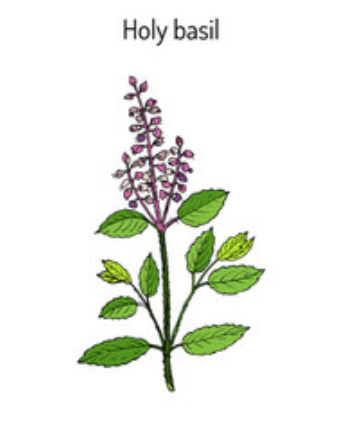Tulsi {Holy Basil}
About
Tulsi is an aromatic shrub in the basil family Lamiaceae (tribe ocimeae) that is thought to have originated in north central India and now grows native throughout the eastern world tropics. Within Ayurveda, tulsi is known as “The Incomparable One,” “Mother Medicine of Nature” and “The Queen of Herbs,” and is revered as an “elixir of life” that is without equal for both its medicinal and spiritual properties. Within India, tulsi has been adopted into spiritual rituals and lifestyle practices that provide a vast array of health benefits that are just beginning to be confirmed by modern science. This emerging science on tulsi, which reinforces ancient Ayurvedic wisdom, suggests that tulsi is a tonic for the body, mind and spirit that offers solutions to many modern day health problems.
Growing
Adaptable to most well-drained soil in a protected sunny position with an adequate amount of water.
Tropical: Spring-summer-autumn
Temperate: Spring to early autumn
Cold: Spring to early autumn
Sow: 3mm deep
Best sown direct in growing position, thin to 20cm apart
Plant space: 20cm
Row Space: 20cm
Germination: 6-10 days
Maturity: 6 weeks

Harvesting
Pick leaves regularly to encourage more growth. Keep well watered. Remove flower buds as soon as they appear for continued leaf growth. Protect from aphids, slugs and snails.
Uses
Leaves have a slightly spicy flavour are commonly used as a flavouring in Thai cuisine. Is used to make a tea. Is sometimes grown as an ornamental. Fast growing. Traditionally used to repel insects.
